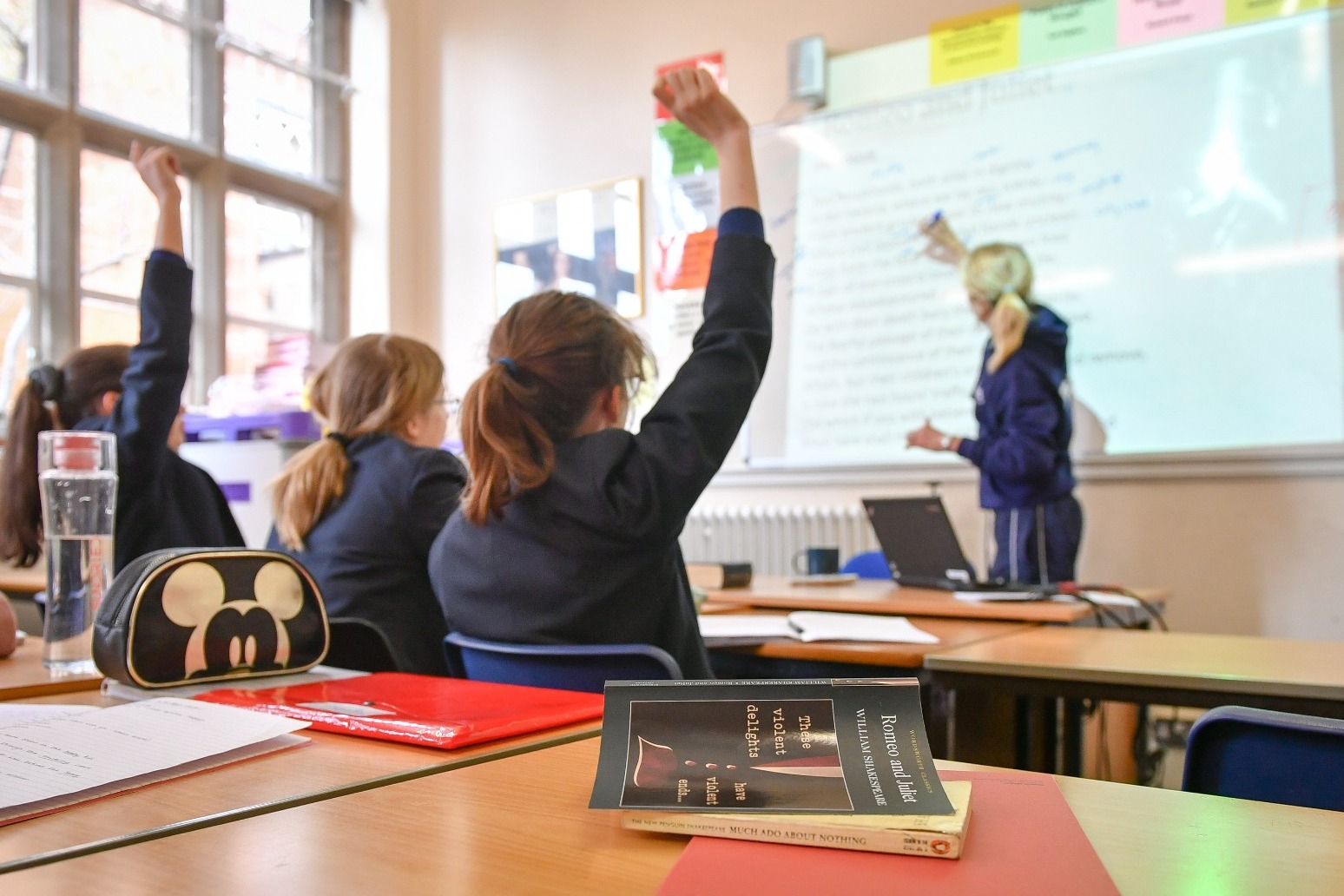-
 play_arrow
play_arrow
Chorley ONE Local Radio for Chorley
Harder for disadvantaged pupils to catch up as they move into secondary school


Disadvantaged pupils in England find it “increasingly difficult” to catch up as they progress into secondary school, a report has suggested.
The Government should prioritise early intervention but also carry out continued interventions throughout pupils’ schooling to reduce the disadvantage gap, the Education Policy Institute (EPI) has said.
The think tank’s report highlights significant variation in the attainment gap between disadvantaged learners and their peers in different areas of England.
Nationally, it found the disadvantage gap was around 4.1 months among pupils aged five in 2017 and then widened to 10.3 months by the time these pupils were aged 11 in 2023.
There were four local authorities in England that managed not to widen the gap by the end of primary school in 2023 – Newham, Camden, Kensington and Chelsea, and Tower Hamlets, which are all in London.
The report – funded by Collective Futures, Ethos Foundation and The Henry Smith Charity – found the disadvantage gap continued to widen as young people moved into secondary school.
For the 2023 cohort, it found the gap widened from 9.2 months among pupils aged 11 in 2018 to 19.2 months by the time these students were aged 16.
Redbridge in London was unique in being the only local authority which achieved a smaller gap at the end of secondary school (4.5 months) than at the start (5.5 months), the analysis found.
Blackpool, Knowsley, Portsmouth, West Berkshire, and Bedford were among the local authorities identified as having “above-average gaps” at both ages 11 and 16.
Meanwhile, Kingston upon Hull, Newcastle upon Tyne, Sefton, Sunderland, and Wigan – which were described as “fade-out” areas in the analysis – had below-average gaps at age 11 but above-average gaps by age 16 for the 2023 cohort.
The report said: “It appears to become increasingly difficult when areas are already behind for their disadvantaged pupils to subsequently catch up, reflected in there being far fewer ‘catch-up’ areas during the secondary phase than at the primary phase.
“This points to the importance of early intervention to support better educational outcomes for disadvantaged pupils before they fall behind their peers.
“Yet we still see some areas where the gap in the early years and primary phases is relatively narrow but is then wider amongst older pupils.
“This highlights that early intervention is not enough and has to be accompanied by continued intervention to prevent further widening of inequalities.”
Emily Hunt, associate director for social mobility and vulnerable learners at the EPI, said: “It is well established that disadvantaged pupils in England start school behind their peers, and these gaps widen significantly as pupils progress through the education system.
“Nationally, the disadvantage gap grows from around four months at age five to over 19 months by age 16. Yet, this trajectory is not inevitable.
“Our new research shows that areas like Camden and Tower Hamlets are managing to narrow these gaps.
“Additionally, places like Birmingham also stand out as attaining well across its disadvantaged cohorts in 2023, showing that success is not confined to the capital.
“Yet our findings also show that it becomes harder for disadvantaged pupils to catch up as they progress through school.
“While many areas — such as Wolverhampton – manage to support pupils to catch up during primary school, far fewer areas achieve this during secondary school, where gaps often widen further.”
Pepe Di’Iasio, general secretary of the Association of School and College Leaders, said: “It is likely that this variation is influenced by the impact of societal factors such as entrenched poverty and damage to aspirations caused by generational disadvantage.
“Other problems are caused by resource issues such as a lack of specialist support, limited access to early years education, and severe staffing and funding shortages in many schools which constrains the pastoral support they can provide.
“Addressing these issues requires cross-government action and investment.”
Paul Whiteman, general secretary at school leaders’ union NAHT, said: “Early years education and support can be pivotal in mitigating the impact of disadvantage on children’s learning, as this report shows, and we have welcomed the new Government’s moves to prioritise this with initiatives including expanding nursery provision in schools and increasing the early years pupil premium.
“It’s vital that school leaders receive the funding needed to deliver these, and that more broadly schools benefit from far more investment than they did under the last government to enable them to better support pupils who need the most help.”
A Department for Education spokesperson said: “Our ambitious Plan for Change sets out our clear mission to break the link between background and success, ensuring that by 2028 a record number of children reach a good level of development when they start school.
“We know there are baked-in inequalities that remain in our education system, which is why we are also delivering free breakfast clubs in every primary school, expanding our attendance mentors programme, and launching our curriculum and assessment reviews that will tackle the obstacles that hold children back.
“We are also developing an ambitious strategy to reduce child poverty and work has already begun to rebuild families’ confidence in reforming the broken Send system with £1 billion.”
Published: by Radio NewsHubClick here to read this story in full at Radio News Hub
Written by: admin
Similar posts
Latest News
- Royal Navy submarine used to warn off Russian spy ship
- Prince Harry given unequivocal apology
- Driving licences and veteran cards to be first digital IDs in Government app
- Deaths of man 36 and young girl unexplained say police
- Risk to life warning as Storm Eowyn to sweep strong winds and rain across UK
Top popular
Copyright THe Mediasite - 2024









